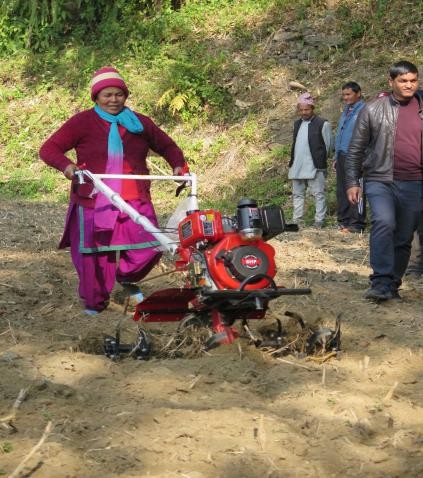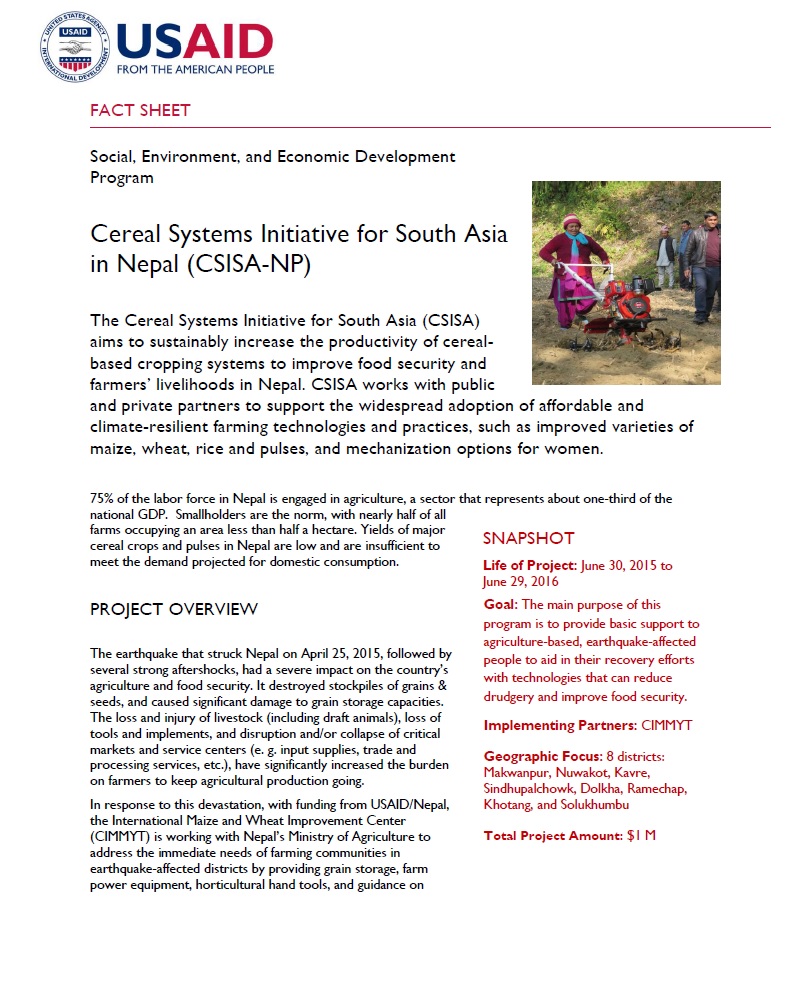
75% of the labor force in Nepal is engaged in agriculture, a sector that represents about one-third of the national GDP. Smallholders are the norm, with nearly half of all farms occupying an area less than half a hectare. Yields of major cereal crops and pulses in Nepal are low and are insufficient to meet the demand projected for domestic consumption.
PROJECT OVERVIEW
The earthquake that struck Nepal on April 25, 2015, followed by several strong aftershocks, had a severe impact on the country’s agriculture and food security. It destroyed stockpiles of grains & seeds, and caused significant damage to grain storage capacities. The loss and injury of livestock (including draft animals), loss of tools and implements, and disruption and/or collapse of critical markets and service centers (e. g. input supplies, trade and processing services, etc.), have significantly increased the burden on farmers to keep agricultural production going.
In response to this devastation, with funding from USAID/Nepal, the International Maize and Wheat Improvement Center (CIMMYT) is working with Nepal’s Ministry of Agriculture to address the immediate needs of farming communities in earthquake-affected districts by providing grain storage, farm power equipment, horticultural hand tools, and guidance on best-bet farming practices. The program will reach 33,150 earthquake-affected households with assets and services. This support complements the Government of Nepal’s other efforts to help communities recover and sustain the productivity of their agricultural systems.
PROJECT ACTIVITIES
- Distribution of seed/grain storage bags, community seed/grain storage cocoons, agricultural hand tools, mini-tillers and mini-tiller attachments, and information about improved farming practices
- Training mini-tiller recipients on improved agricultural practices for maize and rice, according to the season and local cropping patterns
- Training mini-tiller recipients and local mechanics on proper use and maintenance of mini-tillers and attachments
- Supplying local mechanics with spare parts for mini-tillers
PROJECT RESULTS
A list of illustrative results includes the following:
- Distributed 50,000 storage bags (50-60 kg capacity) and 30 community seed/grain storage cocoons (5 and 10 MT capacity), which enabled communities to immediately and safely store their harvest and their seeds for the next planting season
- Distributed 400 mini-tillers (5-9 Hp) and 400 mini-tiller attachments, including seeders, reapers, threshers, water pumps, cage-wheels, specialty tilling blades and maize shellers, which helped farmers reduced labor burden
- Provided trainings for 400 mini-tiller recipients on mini-tiller use and maintenance including improved farming practices, which helped farmers prepare their farms on-time for the next cropping season
- Provided mini-tiller spare parts and training to 64 local mechanics on mini-tiller repair to enable the smooth running and long life of the mini-tillers
- Distributed 20,000 manuals on improved farming practices for rice and maize in order to maximize annual farm productivity.








Comment
Make a general inquiry or suggest an improvement.